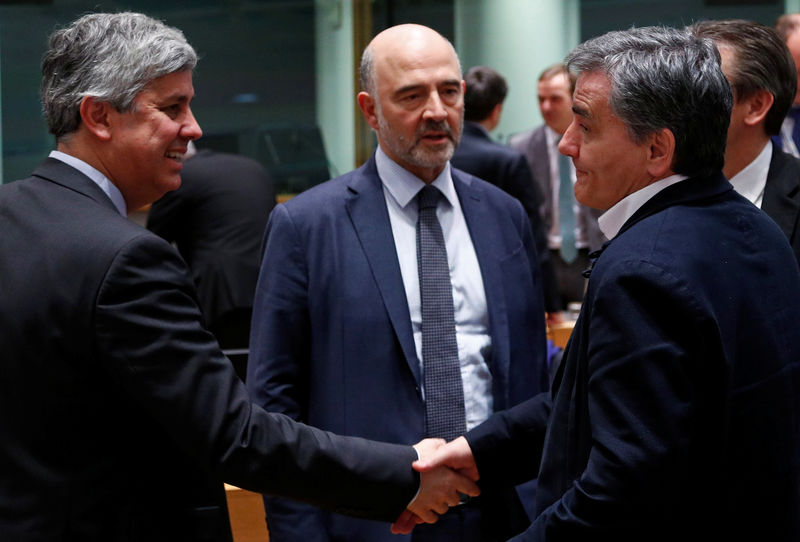By Jan Strupczewski
BRUSSELS (Reuters) - A future euro zone budget should support structural reforms and investment in euro zone countries with grants and loans, the chairman of euro zone finance ministers Mario Centeno said on Monday, summing up discussions among European Union ministers.
Finance ministers from the 27 countries that will remain in the European Union after Britain leaves are seeking ways to deepen the economic integration of the single currency area.
A future budget for the 19 countries that share the euro, and those in the waiting room to join it, is their flagship idea that is to be worked out in more detail over the next three months and fully presented in June.
"There is broad agreement that this tool should support both structural reforms and public investment," Centeno told a news conference.
"Many of us favor an integrated approach, which would allow packages of investment programs and reform measures backed by financial support, to be proposed by members. Overall, the preferred form of delivery is via grants but there is also some support for loans," he said.
The governance of the budget is to be discussed in April and its size and revenues in the following months. It is also yet to be determined if the budget would be part of the broader long-term European Union budget, or be separate and to what extent.
"There is some support to establish as requirement that member states co-finance a portion of the investment and reform package at the national level," Centeno said.
"There is also support to explore the possibility of reducing member states' co-financing rates in case of severe downturns," he said.
The European Commission and the European Central Bank say that to complete the economic and monetary union it is necessary to have pool of money to play a stabilizing role in case of economic downturns to complement the single monetary policy.
The European Commission, which will ultimately have to prepare the final version of the euro zone budget proposal before it becomes EU law, has so far proposed the euro zone budget should be 55 billion euros ($62 billion).
Of that total, 25 billion euros would come from the EU budget and would be used to support reforms and convergence between economies while the remaining 30 billion would be loans, guaranteed by the EU budget, to support investments in countries facing temporary economic shocks.

($1 = 0.8896 euros)